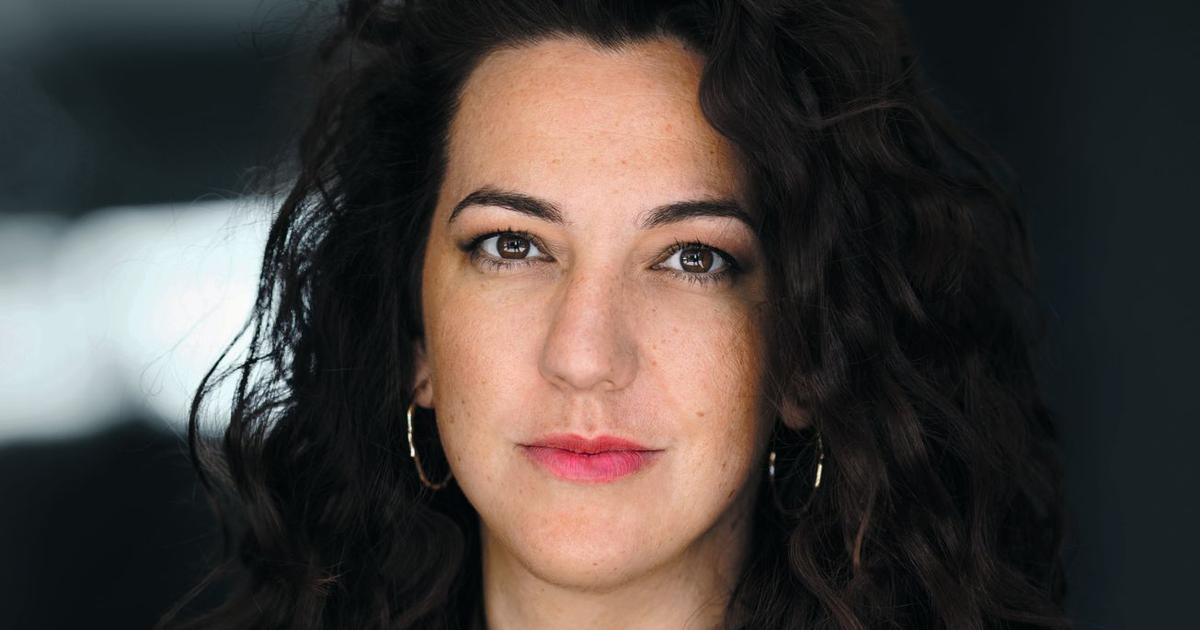Munich Residenz Theater: Werther blossoms
Created: 06/23/2022, 14:03
By: Michael Schleicher
Werther blossoms: the stage design in Munich's Residenztheater.
© Katarina Sopcic/Munich Residenztheater
"Werther.
A theatrical levity” premiered at the Munich Residenztheater.
Elsa-Sophie Jach directed Goethe's epistolary novel "The Sorrows of Young Werther" with Johannes Nussbaum in the title role.
Read our review here:
When Johannes Nussbaum asks his fellow musician – “Sarah, do you have to play right now?” – to push him on the swing, he immediately adds: “But not too much!” Logically, after all the emotions are wild enough at this point in time ride his Werther rollercoaster.
“I suffer a lot!” Of course, not even the yellow safety belt that the actor puts on on the stage of the Munich Residenz Theater helps.
So Werther rocks – and thus this production casually quotes a motif from Fontane's “Effi Briest”.
She, too, is one of those young things whose emotional balance is anything but tidy.
Goethe published Werther in 1774
Goethe told about it 120 years earlier in "The Sorrows of Young Werther" (1774).
His eponymous hero falls madly in love with Lotte, who is promised to Albert, and sees no other way out of this triangular situation than to die after all.
In the novel, the publication of which made the then 25-year-old Goethe a literary star, Werther reported to his friend Wilhelm in umpteen letters from May 1771 to the end of the following year about Lotte, their joint ventures, the blossoming of his love, his pain and his happiness , of their (imagined) soul mates and of brutal despair.
Typical Sturm und Drang, typical young people: everyone spins the wheel when the hormones take over.
In the end, Werther chooses emergency braking, suicide.
Crazy, but consistent – if you will.
Elsa-Sophie Jach becomes the new in-house director at the Residenztheater
Elsa-Sophie Jach has now staged the story for the Bayerische Staatsschauspiel;
on Wednesday (June 22, 2022) was the premiere.
The director supplemented Goethe's original with poems by Karoline von Günderrode (1780-1806), who suffered a fate similar to Werther's - and committed suicide after reading the epistolary novel.
This "Werther effect" frames the 90-minute evening;
Right at the beginning, Jach presents historical suicides.
But the production then cleverly changes the tone, after all it's all a bit over the top.
Just like Aleksandra Pavlović's equipment.
Loud colors, very large flowers and extroverted costumes not only show the intensity of this suffering, but also tell a bit about its ridiculousness.
With this, Jach succeeds
who already impressed in the Marstall with “The Unheard of” and will be the third in-house director from the coming season, which unfortunately some productions under the direction of Andreas Beck lack: their own access to the material.
She dispenses with good sight-reading and does not bother with the mere illustration of texts.
Not everything works with her "Werther", not every one of her ideas is new - and yet this production stands out from the repertoire of the Residenztheater and is worth seeing.
Johannes Nussbaum as Werther at the Munich Residenztheater.
© Katarina Sopcic/Munich Residenztheater
Jach's actor, Johannes Nussbaum, follows this path and is adept at swinging between poles in the sea of emotions of the young lover.
Werther's Wilhelm is Nussbaum's audience, with whom he flirts and chats, to whom he enthuses and whines.
Fortunately, he never forgets that the work is subtitled “A theatrical carelessness”.
Roman Sladek from the Jazzrausch Bigband wrote the music
One would like to praise the actor for this one-man show - if the term weren't fundamentally wrong.
Because the second main role is played by the music of Max Kühn and Roman Sladek.
The latter is also the founder and leader of the Jazzrausch Bigband, which fuses techno and jazz in an intoxicating way and has just released its album "Emergence".
Jazzrausch clarinetist Bettina Maier and pianist Sarah Mettenleiter from the Munich jazz duo Ladybird are Nussbaum's strong partners: their playing never illustrates the text, but comments on it, anticipates, delays or pushes on.
Sladek and Kühn skilfully avoided using drums in their compositions.
After all, Werther's heart sets the pace that evening;
his words are the beats.
Heavy applause, standing ovations.








